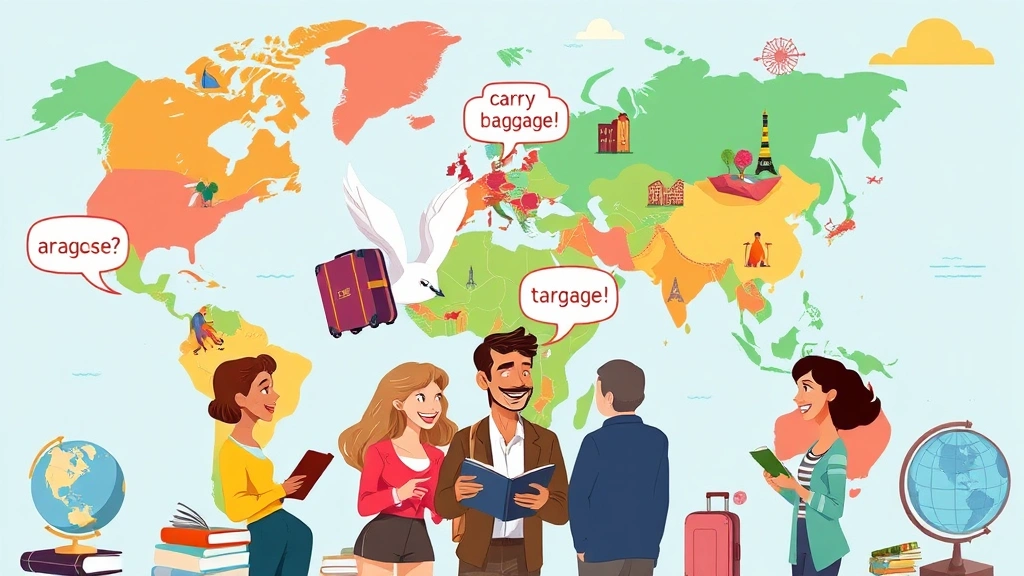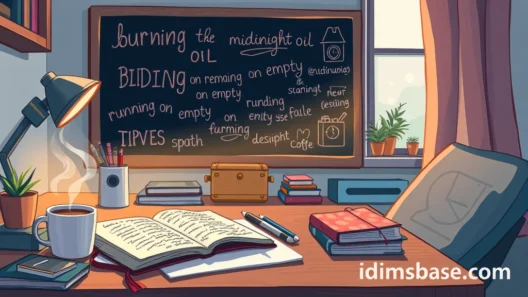Oh, the open road! The wind in your hair, new sights to see, and adventures around every corner. Traveling is one of life's greatest joys, isn't it? It expands your horizons, introduces you to new cultures, and often leaves you with stories for a lifetime. But have you ever noticed how many fantastic English idioms we have that perfectly capture the spirit of travel and adventure?
Language is a journey in itself, and these colorful phrases add so much flavor to our conversations. Whether you're a seasoned globetrotter or just dreaming of your next getaway, understanding these travel idioms will make your English sound more natural, expressive, and, dare I say, more adventurous! So, pack your bags (metaphorically speaking!) and let's embark on a fun linguistic adventure together.
35 Terrific Travel Idioms to Boost Your English!
Get ready to add some sparkle to your travel talk! Here are 35 wonderful idioms that perfectly describe everything from planning a trip to enjoying the ride.
- Hit the road: This means to start a journey or leave a place. "It's getting late, we should hit the road if we want to get there before dark."
- Get itchy feet: To have a strong desire to travel or move to a different place. "After a few months at home, she started to get itchy feet and booked a flight to Thailand."
- Travel light: To travel with very little luggage. "I always try to travel light so I can move around easily."
- Live out of a suitcase: To stay in various places for a short time, with your belongings remaining in a suitcase. "He's been living out of a suitcase for the past year, constantly moving for work."
- Off the beaten path: A place that is not commonly visited, remote, or unusual. "They love exploring places off the beaten path, away from the tourist crowds."
- Break new ground: To do something innovative or explore something previously unknown. "Her research is breaking new ground in sustainable tourism."
- Saddle up: To prepare for a journey, often used for horseback riding but metaphorically for any trip. "Alright team, saddle up! We've got a long drive ahead."
- On the home stretch: The final part of a journey or process. "We've been driving for hours, but we're on the home stretch now."
- The journey of a thousand miles begins with a single step: A proverb meaning that even the longest or most difficult undertakings start with a small, initial action. "Don't be overwhelmed by the big project; remember, the journey of a thousand miles begins with a single step."
- A rolling stone gathers no moss: Someone who travels or moves frequently avoids becoming stagnant or complacent. "He's always moving to new cities; a rolling stone gathers no moss, I suppose."
- See the world: To travel extensively to many different countries. "My dream is to see the world before I settle down."
- Hit the road running: To begin something with enthusiasm and energy, without delay. "As soon as she arrived, she hit the road running, eager to explore the city."
- Road less traveled: A less common or adventurous choice, often implying a more unique or challenging path. "He always takes the road less traveled when planning his holidays."
- In the same boat: To be in the same difficult or challenging situation as others. "We're all delayed due to the bad weather; we're in the same boat."
- Clear the decks: To prepare for action by removing obstacles or unnecessary items. "Before we leave, we need to clear the decks and pack everything."
- Smooth sailing: A journey or process that is easy and without difficulties. "After the initial hiccups, the rest of the trip was smooth sailing."
- Full steam ahead: To proceed with maximum speed or effort. "Once we have the tickets, it's full steam ahead with our travel plans!"
- Burn bridges: To destroy relationships or opportunities, making it impossible to return. "Don't burn your bridges with that airline; you might need them again."
- Set sail: To begin a journey by boat or ship; metaphorically, to begin any journey. "They set sail for the Caribbean at dawn."
- Run out of steam: To lose energy or enthusiasm. "By the end of the long hike, I was starting to run out of steam."
- Get a move on: To hurry up or start moving. "We need to get a move on if we want to catch that train."
- On the go: Very busy; constantly active or traveling. "She's always on the go, juggling work and her passion for travel."
- Travel broadens the mind: The experience of traveling makes one more tolerant and understanding. "Visiting so many different countries, you really see how travel broadens the mind."
- Call the shots: To be in charge or make the decisions. "On this trip, I'm letting my partner call the shots for a change."
- All aboard!: A call to passengers to get on a train, ship, or bus; also used to indicate readiness to begin. "The train is leaving! All aboard!"
- Backseat driver: Someone who gives unwanted advice or tries to control a situation from a secondary position. "My brother is such a backseat driver whenever we go on road trips."
- Hit the road, Jack!: A playful way to tell someone to leave. "The party's over, hit the road, Jack!"
- Pave the way: To create the conditions for something to happen or to make progress easier. "Early explorers paved the way for future generations of travelers."
- At a crossroads: A point in life where an important decision needs to be made. "After graduating, she felt like she was at a crossroads about her career and travel plans."
- Go with the flow: To adapt to circumstances and accept things as they happen, rather than trying to control them. "When you're traveling, it's often best to just go with the flow."
- Take a detour: To take a different route, often longer, to reach a destination; metaphorically, to deviate from a plan. "We had to take a detour because of road construction."
- Pack your bags: To prepare to leave, often implies leaving permanently or for a long time. "He told his boss he was going to pack his bags and start his own business."
- Wanderlust: A strong desire to travel and explore the world. "Her wanderlust led her to backpack across South America."
- Catch your drift: To understand what someone is implying or suggesting. "You want to go to the beach instead? Yeah, I catch your drift."
- The world is your oyster: You have the opportunity to do anything you want or go anywhere you want. "Now that you've graduated, the world is your oyster!"
Key Takeaways
So, what have we learned from our linguistic journey?
- Idioms add color: These phrases make your English more vibrant and natural, especially when talking about travel.
- Context is key: While many have literal roots, their meanings are often figurative.
- Practice makes perfect: The best way to master them is to use them! Try incorporating one or two into your conversations today.

Frequently Asked Questions About Travel Idioms
What are idioms, exactly?
Idioms are phrases or expressions where the meaning isn't obvious from the individual words. For example, "hit the road" doesn't literally mean to strike a road; it means to depart! They're like secret codes in language that natives understand intuitively.
Why should I learn travel idioms?
Learning travel idioms helps you sound more like a native speaker, understand conversations better, and express yourself more vividly. Plus, it's just plain fun to discover the quirky ways language evolves! They really help you get into the swing of things when you're chatting with locals.
Are these idioms used globally?
Yes, these idioms are widely understood and used in English-speaking countries around the world. While some regional variations exist, the ones listed here are generally recognized across the globe. So, you can confidently use them whether you're in London, New York, or Sydney!
Can I use these idioms in formal writing?
Generally, idioms are more suited for informal or conversational English. While some might occasionally appear in creative writing or less formal articles, it's best to avoid them in academic papers or very formal business communications. Think of them as the comfy, well-worn travel clothes of language – perfect for a casual outing, not so much for a black-tie event!
How can I remember so many idioms?
The best way to remember idioms is to use them in context. Try to:
- Associate them with images: Picture someone literally "hitting the road" when you think of the phrase.
- Use them in sentences: Create your own example sentences.
- Listen for them: Pay attention when native speakers use them in movies, songs, or conversations.
- Group them: Like we did here, grouping them by theme (travel) helps!
Learning these idioms is like adding new stamps to your linguistic passport. Each one opens up a new way to express yourself and connect with others. So, don't just dream of your next adventure; talk about it with flair! Which of these idioms will you try to use first? Let's get out there and explore, both the world and its amazing languages!








